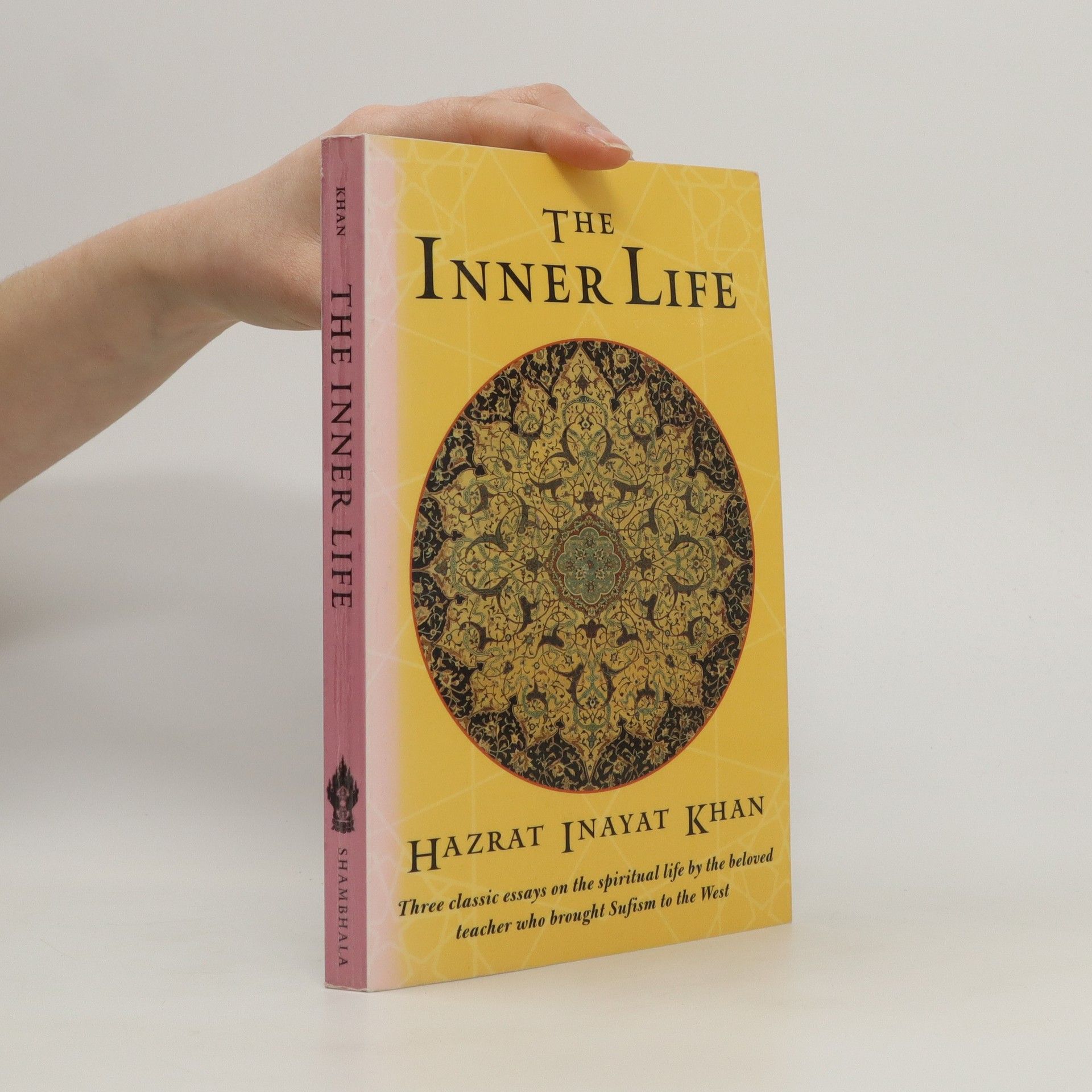Awakening of the Human Spirit
- 206pages
- 8 heures de lecture
Description of inner stages of personal spiritual development. Making spiritual ideals a reality in everyday life.
Hazrat Inayat Khan fut un exemple du soufisme universel et le fondateur de l'Ordre Soufi en Occident. Son message universel d'unité divine se concentrait sur les thèmes de l'amour, de l'harmonie et de la beauté. Il enseignait que l'adhésion aveugle à n'importe quel livre vidait toute religion de son esprit. Khan vint initialement en Occident en tant que représentant de la musique classique indienne, mais se tourna bientôt vers la transmission de la pensée et de la pratique soufies.






Description of inner stages of personal spiritual development. Making spiritual ideals a reality in everyday life.
Teachings on sound presenting a vision of the harmony which underlies and infuses every aspect of life. Science of breath, law of rhythm, the creative process, healing power and psychological influence of music.
The Art of Being and Becoming gathers Inayat Khan's teachings on what the Sufis consider the fruit of the whole creation -- the divine art of creating the human personality. This volume gives methods for training the ego, tuning the heart, and developing will power, all to help one develop and perfect a natural way of being in the world. Excerpt: " For every soul there are four stages to pass through in order to come to the culmination of the ego, which means to reach the stage of the rose. In the first stage a person is rough, thoughtless, and inconsiderate. He is interested in what he wants and in what he likes; as such he is naturally blind to the needs and wants of others. In the second stage a person is decent and good as long as his interests are concerned. As long as he can get his wish fulfilled he is pleasant and kind and good and harmonious, but if he cannot have his way, then he becomes rough and crude and changes completely. There is a third stage, when someone is more concerned with another person's wish and desire and less with himself, when his whole heart is seeking for what he can do for another. In his thought the other person comes first and he comes afterwards. That is the beginning of turning into a rose. It is only a rosebud, but then in the fourth stage this rosebud blooms in the person who entirely forgets himself in doing kind deeds for others."
The mind and its role in the spiritual life, including the purification and training of the psyche. Intuition, visionary dreams, inspiration and revelation.
The Indian Sufi master Hazrat Inayat Khan (1882–1927) was the first teacher to bring Sufism—Islamic mysticism—to the Western world. His teaching was noted for its stirring beauty and power, as well as for its applicability to all people, regardless of religious or philosophical background. This book gathers together three of Inayat Khan's most beloved essays on the spiritual life from among the fourteen volumes of his collected works: • "The Inner Life": Inayat Kahn's sublime portrait of the person whose life is a radiant reflection of the Divine • "Sufi Mysticism": in which the author identifies and shatters the common misconceptions about mysticism to reveal its true meaning • "The Path of Initiation and Discipleship": What it means to set out on the spiritual path and how to find and maintain the right relationship with a teacher
The complete teachings on kinship for inner and outer guidance. Fundamental to the mystical vision of life is the insight that the whole universe forms a single body. From this perspective, everything is related to everything else within a complex and dynamic pattern of interconnectedness. One who discerns this all-encompassing moiré of unity-in-multiplicity discovers the self in the other and the other in the self. The mode of living that results from this discovery is a gentle and refined manner. Hazrat Inayat Khan’s teachings on kinship are a profound introduction to this way of seeing and being. Here, simply spoken, is the answer to the problem of the day.
Focusing on the teachings of Hazrat Inayat Khan, this series explores various aspects of Sufism, guiding readers towards inner peace. Each volume offers insights into understanding spirituality, emphasizing the transformative power of Sufi practices and philosophies.
Accomplishment in worldly affairs is seen as the means of developing the ability to achieve what one wishes, and ultimately to achieve the purpose of life.
The works of Hazrat Pir-o-Murshid Inayat Khan are one of the great spiritual treasures of the world. At once deeply rooted in the Sufi tradition and strikingly original in insight and expression, Hazrats teachings remain as potent and meaningful today as they were when originally communicated a century ago. These teachings contain a message for every human mind and heart, and indeed for humankind collectively. The aim of this series is to provide the full set of Hazrats best-known teachings in a form that balances fidelity to his original words with sensitivity to the contemporary evolution of the English language.
"The lecture series presented here, include ""The Mysticism of Sound,"" ""Music"", ""The Power of the Word"", and represent the harvest of Hazrat Inayat Khans lifelong cultivation of the transformative power of music and soundas much, at least, as could be rendered in words. For decades, these fascinating discourses have provided inspiration not only to Sufi practi- tioners, but also to musicians working in various genres. It is hoped that this new edition will bring Hazrat Inayat Khans spiritual philosophy of music to a new generation of divers for pearls in the ocean of the human heart."